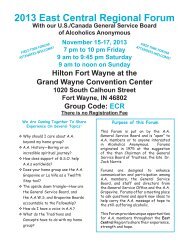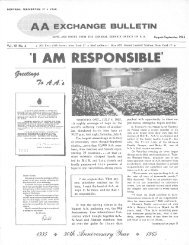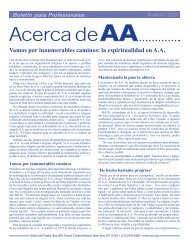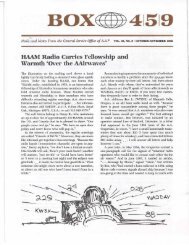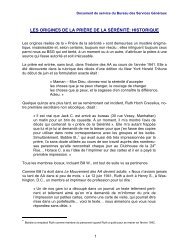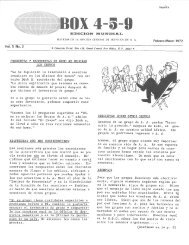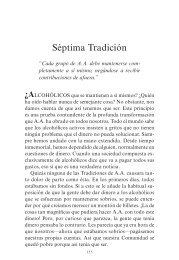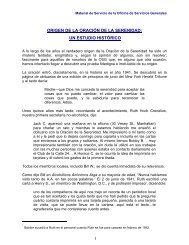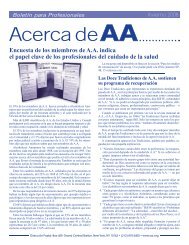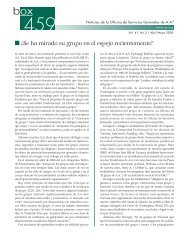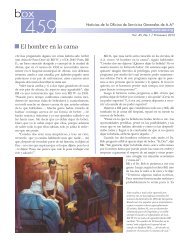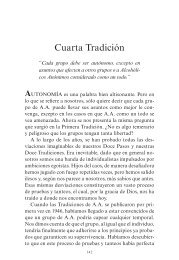Three Talks to Medical Societies by Bill W - Alcoholics Anonymous
Three Talks to Medical Societies by Bill W - Alcoholics Anonymous
Three Talks to Medical Societies by Bill W - Alcoholics Anonymous
You also want an ePaper? Increase the reach of your titles
YUMPU automatically turns print PDFs into web optimized ePapers that Google loves.
state rehabilitation and clinical efforts, are ready<br />
sources of helpful knowledge. So armed, the family<br />
physician can — as we say in A.A. — “soften<br />
up” the drunk so that he will be willing <strong>to</strong> take a<br />
look at our Fellowship. Or, if he balks at A.A.,<br />
he may be directed <strong>to</strong> a clinic, a psychiatrist, or<br />
an understanding pas<strong>to</strong>r. At this stage, the main<br />
thing is that he recognize his illness and that he<br />
start <strong>to</strong> do something about it.<br />
If the family physician’s job is carefully<br />
done, the results are often immediate. If the first<br />
attempt doesn’t work, the chances are better than<br />
even that persistent and successive approaches<br />
will bring results. These simple procedures do<br />
not rob the family physician of much time, nor will<br />
they be necessarily hard on the patient’s pocketbook.<br />
A concerted effort of this sort <strong>by</strong> family<br />
physicians everywhere could not fail <strong>to</strong> achieve<br />
immense results. In fact, the effect of the family<br />
physician’s work of this sort has already been<br />
great. And for this, I would like <strong>to</strong> set on our<br />
record the very special thanks of A.A. <strong>to</strong> them.<br />
Now we come <strong>to</strong> the specialist, usually the<br />
psychiatrist. I’m glad <strong>to</strong> say that psychiatrists in<br />
great numbers are referring alcoholics <strong>to</strong> A.A. —<br />
even psychiatrists who more or less specialize on<br />
alcoholics. Their understanding of alcoholics is<br />
now great. Their patience and their <strong>to</strong>lerance of<br />
us, and of A.A., have been monumental.<br />
In 1949, for example, the American Psychiatric<br />
Association allowed me <strong>to</strong> read a paper on A.A.<br />
before a section of its Annual Meeting (see page<br />
39). As these doc<strong>to</strong>rs specialize in emotional disorders<br />
— and alcoholism is certainly one of them<br />
— this act of theirs has always seemed <strong>to</strong> me a<br />
wonderful example of fine humility and generosity.<br />
The reprints of even that one paper have had a<br />
vast effect, worldwide. I’m sure that we A.A.’s<br />
have never been sufficiently appreciative of all of<br />
this. It used <strong>to</strong> be the fashion among some of us<br />
in A.A. <strong>to</strong> decry psychiatry, even medical aid of<br />
any description, save that barely needed for sobering<br />
up. We pointed <strong>to</strong> the failures of psychiatry<br />
and of religion. We were apt <strong>to</strong> thump our chests<br />
and exclaim, “Look at us. We can do it, but they<br />
can’t!” It is therefore with great relief that I can<br />
report this <strong>to</strong> be a vanishing attitude. Thoughtful<br />
A.A. members everywhere realize that psychia-<br />
20



